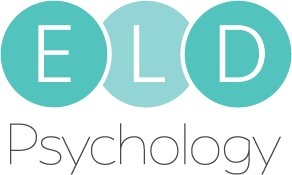Common Counselling Therapies Your Clinical Psychologist May Use
Our highly skilled Newcastle clinical psychologists are adept in various evidence-based psychological treatments and therapeutic approaches. These counselling treatments, including therapeutic approaches and behavioural therapy, have been developed through rigorous scientific research, which our psychologists have studied closely and applied extensively in diverse environments. When you attend your first appointment – either in person or online, your psychologist will first work with you to understand your experience and then decide on a course of treatment, including which therapy they will use (or a combination thereof) to assist you to obtain a sense of balance and wellbeing in your life.
This article explores evidence-based treatment modalities our clinicians and psychologists use in counselling sessions.
Your psychologist might use Cognitive behavioural therapy.
Cognitive behavioural therapy (CBT) is a practical talking therapy that focuses on solving current problems. Your therapist will work with you to recognise patterns of thinking (cognitions) and behaviours that cause and maintain difficulties. CBT can help break unhelpful thinking patterns, address behaviours that maintain problems, and help you turn a corner into a more balanced frame of thinking.
CBT would be most beneficial to you if you are a person who experiences emotional, psychological and psychiatric issues such as anxiety, depression, stress, perfectionism and more.
Counselling Newcastle: Acceptance and Commitment Therapy
Acceptance and commitment therapy (ACT) focuses on accepting feelings, rather than avoiding or denying them, to maximise your potential to enjoy a meaningful and full life. Your counsellor will use techniques such as mindfulness and value-driven action to help you learn psychological flexibility to help you live with inevitable hardships and stress.
ACT might be an appropriate treatment for you if you are a person who suffers from anxiety, depression, OCD, addiction or substance use issues.
Enhanced cognitive behaviour therapy
Enhanced cognitive behavioural therapy (CBT-E) has been developed specifically for the treatment of patients with eating disorders. CBT-E is highly individualised – your counsellor will create a specific version of the therapy to match the exact eating problem you are experiencing. CBT-E aims to achieve long-term improvements in symptoms by modifying and stabilising eating patterns and addressing factors that maintain the eating disorder.
Your therapist may use CBT-E if you are a person who is experiencing an eating disorder.
Your psychologist might use Schema therapy.
Schema therapy combines elements of approaches such as CBT, psychoanalysis, attachment theory and emotion-focused treatment to help ensure your emotional needs are met in a healthy way that doesn’t cause distress. Your counsellor will work with you to uncover and understand your schemas – unhelpful patterns you may have developed as a child if your emotional needs weren’t met – and assist you to start healing these. Schema therapy aims to help you create a robust and healthy adult model and relationship with yourself to help you recover and regulate your schemas.
Our area of service and how to contact us
We provide clinical psychology services to people over 18 in the Newcastle, Lake Macquarie and Hunter areas. Our office is located in Newcastle West (near the corner of Bellevue and Hunter Streets), and we can also provide online-based services.
Visit our Contact Us page for more information about how to contact us and a map of our location in Newcastle.
Disclaimer
The content provided on this blog is intended for Australian audiences and is for informational purposes only. It should not be considered as professional psychological advice, diagnosis, or treatment. The information shared here is based on general knowledge and experience in the field of psychology, but it may not be applicable to your specific situation.
Always seek the advice of your psychologist or other qualified mental health provider with any questions you may have regarding a psychological condition or treatment. Never disregard professional psychological advice or delay in seeking it because of something you have read on this blog.
If you are in crisis or you think you may have an emergency, call your doctor, or dial 000 immediately. This blog is not intended to be a substitute for professional advice, diagnosis, or treatment.
The opinions expressed in this blog are solely those of the author and do not necessarily reflect the views of any affiliated organisations or institutions.

